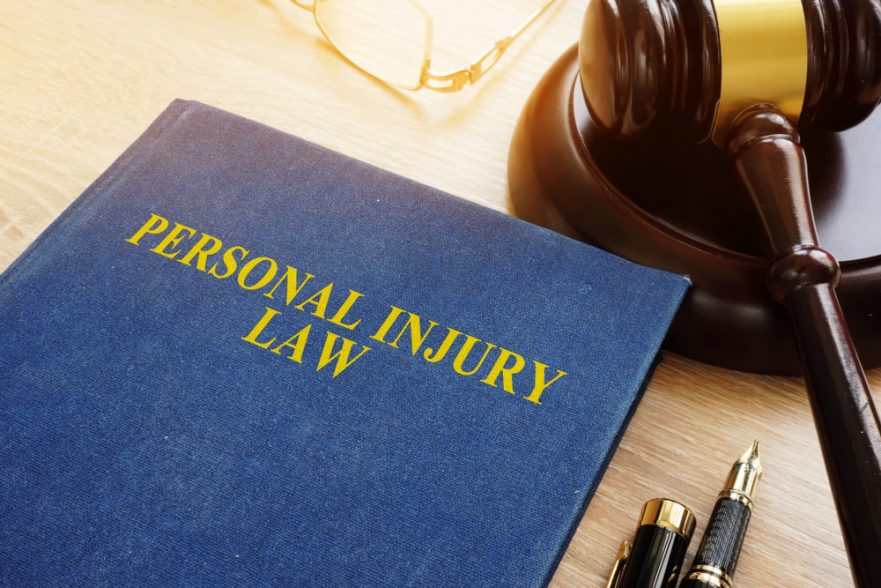You don’t realize how many law firms promote themselves as personal injury lawyers until you are hurt in an accident and need to hire one to represent you. A Google search using “personal injury lawyers Oregon” as the search criterion yields a staggering number of law firms advertising themselves as handling personal injury claims. Here are four things to look for to help you find a personal injury lawyer capable of providing the representation your case needs and deserves.
The primary focus of the attorney’s practice is personal injury law
Personal injury law, which you might also see referred to as “tort law,” focuses on the recovery of damages for individuals injured or suffering property damage due to the negligent or intentional conduct of other parties. A car accident caused by a distracted driver reading a text message instead of paying attention to the road and other vehicles is an example of a tort or personal injury claim. Another example of a tort case would be a person assaulting someone during an argument, resulting in serious injuries.
A lawyer’s experience handling personal injury cases should not be taken for granted. The attorney who handled your divorce case might not be the best choice to pursue a claim for damages against a negligent truck driver for causing an accident in which you were seriously injured. The skills and knowledge needed to evaluate a personal injury claim and determine the best method for presenting evidence to achieve a successful result require years of experience handling tort claims.
When searching for a personal injury lawyer to represent you, find out what percentage of the attorney’s practice is devoted to tort law and the types of tort cases the attorney handles. The following are types of cases in the category of personal injury:
- Car, truck, and other motor vehicle accidents.
- Medical malpractice.
- Dog bite and animal attacks.
- Slip-and-fall accidents.
- Product liability claims.
- Intentional conduct, including assault.
A personal injury lawyer who primarily handles motor vehicle accidents might not have the experience and skills needed to take on a medical malpractice case against a negligent surgeon. Experience handling a particular type of tort claim usually gives a lawyer insight into the legal issues, including defenses, commonly associated with it.
The lawyer does not avoid taking a case to trial
A personal injury lawyer’s reputation with insurance company claims adjusters and insurance defense counsel can have an impact on the outcome of your case. Personal injury attorneys with a reputation for settling claims rather than taking them to trial could result in lower settlement offers from adjusters who believe an attorney settles cases to avoid trials.
Settling a claim to avoid a trial is quite different from negotiating a settlement that fairly compensates an accident victim for the injuries the person suffered. In fact, various studies have concluded that about 95% of tort cases end in a settlement, but the reputation of the personal injury lawyer can influence the size of the settlement offer.
You want to know that the attorney you choose to represent you has personal injury trial experience and is capable of taking your case to trial if necessary to achieve the best result. It might only be a small percentage of the total number of cases the lawyer handles each year, but it lets insurance adjusters and defense lawyers know that your attorney will not settle a claim simply to avoid a trial.
The lawyer you meet will be handling your case
The lawyer you meet during an initial consultation might not be the one handling your personal injury case. If you are dealing with a personal injury law firm that has multiple attorneys, make certain the lawyer you believe is the right choice to represent you will be the one actually handling your case from beginning to conclusion.
You understand how the lawyer will be paid
Contingency fee arrangements are common in personal injury cases. The fee paid to a lawyer under a contingency fee agreement is based upon a percentage of the amount recovered on behalf of the client by way of settlement or verdict after trial. In Oregon, for example, contingency fee agreements must be reduced to writing at the time the attorney takes on the case.
It is important to be aware that a contingency fee arrangement may not mean that you do not have any financial responsibility in the event your case does not result in a settlement or verdict. The personal injury lawyer is entitled to recover court costs and other out-of-pocket expenses advanced for depositions, expert witnesses, and other costs related to the litigation, even if no fee is due.
Before making your decision about a personal injury lawyer
Take the time to speak with two or three attorneys before deciding on one to represent you in your personal injury case. Ask for recommendations from friends, co-workers, and family members who have used a personal injury lawyer in the past. Even if you get a recommendation, you should interview the lawyer to make sure you feel comfortable with them.

